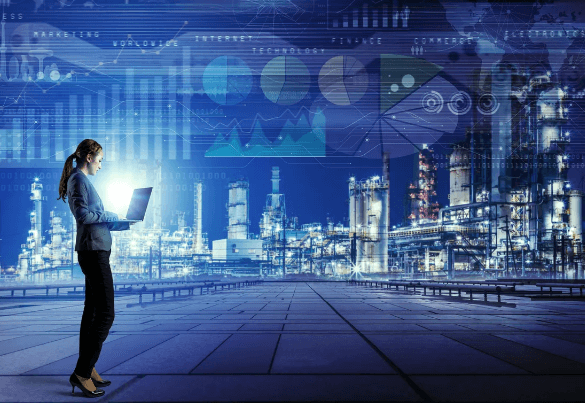What challenges and opportunities does the Internet of Things (IoT) present for urban development?

Introduction
The Internet of Things (IoT) is revolutionizing how cities operate, offering an array of opportunities and challenges for urban development. By interconnecting devices and systems, IoT enables smarter, more efficient urban environments. Yet, this technological advancement also brings complexities and risks that need careful consideration. This article delves into the critical opportunities and challenges that IoT presents for urban development, exploring its impact on infrastructure, sustainability, security, and more.
Understanding the Internet of Things (IoT)
The IoT refers to the network of physical devices, vehicles, home appliances, and other items embedded with sensors, software, and connectivity. This network allows these objects to connect and exchange data, creating opportunities for more direct integration of the physical world into computer-based systems. In urban development, IoT applications range from traffic management and waste management to energy efficiency and public safety.
IoT and Urban Infrastructure Development
IoT technology can significantly enhance the efficiency of urban infrastructure. Smart grids, for instance, use IoT to optimize the distribution and consumption of electricity, reducing wastage and lowering costs. Similarly, smart water management systems monitor and control water usage, detecting leaks and ensuring optimal water distribution.
Upgrading existing urban infrastructure to incorporate IoT technologies is a major challenge. Many cities have legacy systems that are incompatible with new IoT solutions, requiring substantial investment and time for modernization. Additionally, the integration of IoT requires robust network infrastructure and data management systems to handle the vast amounts of data generated.
Sustainability and Environmental Impact
IoT can play a pivotal role in promoting sustainability within cities. Smart waste management systems can optimize collection routes, reduce fuel consumption, and lower emissions. IoT-enabled environmental monitoring can provide real-time data on air and water quality, helping cities to address pollution issues promptly.
However, the deployment of IoT devices themselves can have environmental impacts. The production, operation, and disposal of IoT devices contribute to electronic waste and carbon emissions. Ensuring that IoT solutions are designed with sustainability in mind is crucial for minimizing these negative effects.
Improving Public Safety and Security
IoT offers significant advancements in public safety. Smart surveillance systems equipped with AI and IoT can monitor public areas in real-time, detecting unusual activities and alerting authorities immediately. Emergency response systems can also be enhanced through IoT, providing real-time data to first responders about the situation on the ground, enabling quicker and more effective responses.
On the flip side, the extensive data collection involved in IoT can lead to significant privacy and security concerns. Unauthorized access to IoT systems can result in data breaches, compromising personal information. Cities must invest in robust cybersecurity measures to protect sensitive data and maintain public trust.
Economic Opportunities and Challenges
IoT presents numerous economic opportunities for urban development. Smart cities can attract businesses and investors looking for innovative environments to operate. Additionally, the deployment and maintenance of IoT systems create new job opportunities and drive technological advancements.
However, the initial cost of implementing IoT infrastructure can be a significant barrier. Cities must carefully plan and secure funding for IoT projects, ensuring that investments lead to long-term economic benefits. Public-private partnerships and innovative financing models can help address these challenges.
Enhancing Quality of Life
IoT has the potential to vastly improve the quality of life for city residents. Smart homes, connected healthcare systems, and intelligent public transportation can make daily life more convenient and efficient. IoT can also enhance accessibility for people with disabilities, creating more inclusive urban environments.
Despite the benefits, it’s important to balance technological advancements with human needs. Over-reliance on technology can lead to social isolation and other negative impacts. Urban planners must ensure that IoT solutions enhance human interactions and community engagement.
Smart Transportation Systems
IoT can revolutionize urban transportation. Smart traffic management systems can monitor and control traffic flow in real-time, reducing congestion and improving safety. Connected vehicles can communicate with each other and with traffic infrastructure, enhancing the overall efficiency of urban transport networks
However, integrating various IoT-based transportation systems poses challenges. Ensuring interoperability between different systems and devices is crucial for seamless operation. Standardization and collaboration between different stakeholders are essential to overcome these challenges.
Public Health and IoT
IoT can significantly enhance public health services in urban areas. Wearable health devices and remote monitoring systems can provide real-time health data, enabling timely interventions and personalized healthcare. IoT can also improve the efficiency of emergency medical services by providing real-time location data and traffic information.
However, the use of IoT in healthcare raises concerns about data privacy and security. Protecting sensitive health data from breaches and ensuring compliance with privacy regulations is crucial. Robust cybersecurity measures and ethical guidelines are necessary to safeguard patient information.
Urban Planning and Management
IoT can transform urban planning by providing real-time data on various aspects of city life. This data can inform decision-making, optimize resource allocation, and improve the overall efficiency of urban management. Predictive analytics can also help cities anticipate and address future challenges.
Managing the vast amounts of data generated by IoT systems is a significant challenge. Ensuring data quality, accuracy, and privacy is essential for effective urban planning. Cities must invest in advanced data management and analytics capabilities to leverage IoT data effectively.
Citizen Engagement and Participation
IoT can enhance citizen engagement by providing platforms for real-time communication and feedback. Smart city applications can enable residents to report issues, access city services, and participate in decision-making processes. This increased engagement can lead to more responsive and transparent urban governance.
However, ensuring that all citizens can participate in and benefit from IoT initiatives is crucial. Digital divides and accessibility issues can exclude certain populations from the advantages of IoT. Cities must address these issues to create inclusive smart urban environments.
Resilience and Disaster Management
IoT can play a vital role in enhancing urban resilience and disaster management. Sensors and monitoring systems can provide early warnings for natural disasters, enabling timely evacuations and responses. IoT can also support post-disaster recovery by providing real-time data on damage and resource needs.
Implementing IoT for disaster management involves challenges such as network reliability, data integration, and coordination between various agencies. Robust planning and collaboration are essential to ensure effective disaster management using IoT technologies.
Smart Energy Management
IoT can revolutionize energy management in urban areas. Smart grids, connected buildings, and IoT-enabled appliances can optimize energy consumption, reduce costs, and lower carbon emissions. Renewable energy sources can be better integrated into the urban energy mix through IoT technologies.
However, the increased connectivity of energy systems raises concerns about energy security. Protecting smart grids and other critical infrastructure from cyberattacks is crucial. Cities must invest in cybersecurity measures and develop strategies to ensure energy resilience.
FAQs
What are the main benefits of IoT in urban development?
IoT offers numerous benefits in urban development, including improved efficiency of infrastructure, enhanced public safety, optimized resource management, and better quality of life for residents.
What are the key challenges of implementing IoT in cities?
The key challenges include high initial costs, integration with existing infrastructure, data privacy and security concerns, and ensuring inclusivity in access to IoT benefits.
How can IoT improve public safety in cities?
IoT can improve public safety through smart surveillance systems, real-time emergency response coordination, and enhanced communication between law enforcement agencies.
What role does IoT play in sustainable urban development?
IoT promotes sustainability by optimizing resource use, reducing emissions, and enabling real-time environmental monitoring to address pollution and other environmental issues.
How can cities address the privacy concerns associated with IoT?
Cities can address privacy concerns by implementing robust cybersecurity measures, ensuring compliance with data protection regulations, and promoting transparency in data usage.
What economic opportunities does IoT present for urban areas?
IoT can drive economic growth by attracting businesses, creating job opportunities, and fostering technological innovation in smart city solutions.
Conclusion
The Internet of Things (IoT) presents both significant opportunities and challenges for urban development. By leveraging IoT technologies, cities can enhance infrastructure efficiency, promote sustainability, improve public safety, and elevate the quality of life for residents. However, addressing the associated challenges, such as data privacy, security, and the integration of new technologies with existing systems, is crucial for realizing the full potential of IoT in urban development. As cities continue to evolve and grow, IoT will undoubtedly play a pivotal role in shaping the urban landscapes of the future.





